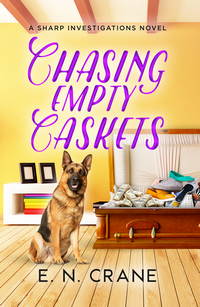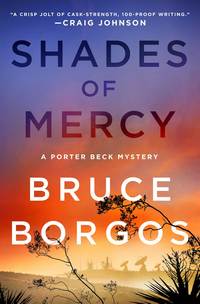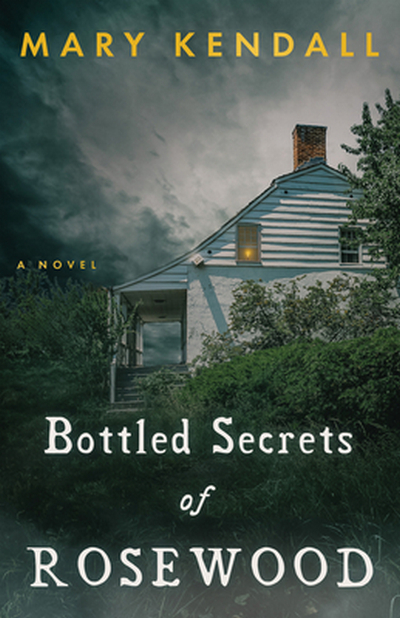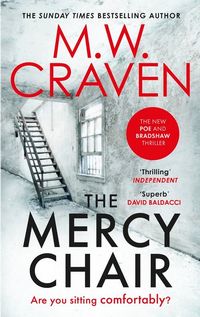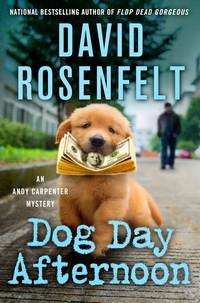by M.W. Craven
DETAILS:
Series: Washington Poe, #6
Publisher: Constable
Publication Date: June 6, 2024
Format: Hardcover
Length: 414 pg.
Read Date: June 10-13, 2024


What’s The Mercy Chair About?
The book opens with Washington Poe in one of the least likely places we’ve seen him—therapy. Sure, he’s not there because he really wants to be—but he’s still there. Dr. Clara Lang is a trauma therapist, and she’s trying to help Poe recover from a case that drove him to the point that an “incident” occurred (SPOILER: it’s nothing as bad as what he did prior to The Puppet Show, but this one had witnesses).
He’s not in a good space—nightmares are plaguing him, and the circumstances around this case are likely what pushed him over the edge. The founder of a group called The Children of Job—an independent religious group associated with “extreme” views on sex, sexuality, government, and several other “culture war”-type issues—has been murdered. Stoned to death, to be precise. Poe and Tilly’s old friend, the Bishop of Carlisle, wants them to look into this—the Children of Job have been trying to be recognized for years, and while he’s disinclined to do that, he’d like to get this murder cleared up and to explore the group some. Enter our heroes.
It’s a brutal, brutal murder—but as the investigation goes on, they learn more and more about this Church, its practices and beliefs—practices that aren’t just questionably acceptable or orthodox—but some that are downright criminal. And every secret, every layer of mystery, that Poe uncovers shows another layer of dirt and darkness. You won’t feel that bad for the murder victim for too long.
Also, their agency is being audited by the government—one auditor, Linus, is assigned to Poe and Tilly while they conduct this investigation. Poe dubs him an intern and treats him like one—hoping to dissuade him from continuing this “audit” or at least not to let things get bogged down by Linus. Poe can see through the story he and his DI have been fed about this auditor, but he’s still stuck with him for the duration, as complicating as his presence/observation is (if only because Poe has to worry about his real purpose).
The Religion of The Children of Job (and others)
I have several questions regarding the beliefs of this group, The Children of Job. For example, what’s with that name? It’s an odd one to pick. The leader/founder of the group is covered in religious tattoos, but they seem like a fundamentalist group (and are compared to Westboro Baptist Church)—and I really don’t see those two going together. But I could be wrong there. But other things that don’t work with that group are things like the dichotomy of mortal and venial sins (something we’re told the CoJ do hold to).
I get it—the main thing we’re supposed to focus on with this group is their controversial (at best) beliefs and practices. They’re supposed to be the intolerant, unthinking group that Poe can rail and push against. But the lack of a coherent religious worldview and practice really doesn’t work. Yes, they should seem aberrant to Poe and Tilly’s secular point of view and to the Bishop of Carlisle’s very un-secular perspective, that’s beside the point. It should sill seem internally consistent—and the Children of Job don’t. They really feel like a hodgepodge of hot-button Evangelical/Evangelical-ish beliefs and practices forced into some religious chimera.
If, like most readers (I suspect), you don’t notice or care about this sort of thing, you’ll do fine. On the other hand, if you take this stuff seriously and expect sectarian groups that border on being a cult would take it seriously, too…it will bother you. It should bother the COJ. Does this impact the experience of the reader? Not really. Does it impact the hunt for the killer, his/her/their motivation? Nope. Does it impact Poe, Tilly, or anyone else we care about in the book? Nope. Did it/does it occupy too much real estate in my mind? Yup.
Along these lines—sort of, we’re told that Poe’s “intern” Linus read theology at university, and he’s treated as the investigation’s religion expert after that. Which is fine, it’s not like they can call the Bishop of Carlisle every time something comes up. But in Chapter 17 he pokes at one of my pet peeves, calling the last book in the New Testament “Revelations.” Now, the name of the book is singular—coming from the opening line, “The Revelation of Jesus Christ…” Back in Chapter 11, he got the name right. So, is he just sloppy? Maybe (but the more we get to know him, the less likely that seems). And for all her lack of interest in religion, how does Tilly not catch something like that and harp on it? Is this a case of sloppy copy editing? That’s possible. But I don’t know, and it irks me. It’s not a big deal, but it’s one of those errors that’s like nails on a chalkboard to me.
Poe’s Life Battles
One of the problems with juice and smoothie bars was that however much they dressed it up, they really only served fruit and vegetables. It didn’t matter that the ingredients had been blended, put in a cup and served with a soggy cardboard straw, it was still a gunky mess of unpalatable leafy greens and unbearably sour or sickeningly sweet fruits. Ingredients supermarkets wouldn’t put on the same aisles were forced together then given misleading names such as Liquid Sunshine and Endless Summer.
But the main problem was that for a supposedly fast and convenient food, smoothie and juice bars were slow and inconvenient. Poe reckoned he and Linus had been waiting for fifteen minutes. And, to make matters worse, the place Bradshaw had sent them no longer did milkshakes. The teenager behind the counter had offered Poe frozen yoghurt instead, to which Poe had replied, ‘T’d rather piss in my shoes.’
While they waited Linus said, “You seem to have a lot of these little “life battles”, Poe.’
‘What battles?’
‘Well, this one for a start. All you had to do was say no thanks to the frozen yoghurt. Instead, it became a whole big thing. I’d be surprised if they don’t spit in our smoothies.’
‘And I’d be surprised if you noticed,’ Poe said.
It will come as no surprise to anyone who’s read this series—or any of Craven’s work because it’s true of all his protagonists—that Washington Poe’s greatest enemy is himself. As seen, even Linus (who hasn’t known Poe that long—and is kept at arm’s length) can see it.*
* Also, I rather enjoyed that pericope.
Each book in the series explores—in one way or another—Poe’s propensity to engage in these life battles, and what they cost him—whether it be his home, his job, his credibility, the purchase price for a roasted goat, or spit in Tilly’s smoothie (spit in Linus’ smoothie would be a gift to Poe).
To some extent those close to Poe, or those who’ve worked with him and have seen what his methods/personality result in, can tolerate this, or make allowances for it. But
Now, any armchair therapist would tie this into his mother abandoning him and him telling himself (or Linus in a couple of pages after this) that he just doesn’t care about what other people think. But that’s garbage, and as much as Poe will tell that story to himself—he may even believe it—this comes from a dark place (no surprise) and potentially wreaks havoc on his personal life. It’s done that to his career—and it may do it to individual cases.
When we first met him, there was D.I. Stephanie Flynn—a friend of sorts—and, that’s about all we know about in Poe’s life outside of work (and since they worked together…). But now he has a home, he has Edgar. He has grown over this series—see his relationship with Tilly, with Estelle—and even his working relationship with the police in Cumbria. There are people and things besides his stubborn self-reliance in his life. He might even be fighting fewer life battles. Hopefully not too many—he might be a slightly less entertaining character if he gives up on them completely. But seeing gradual change—growth, thankfully—in a mature character is a great feature in a series.
And all of that is due to Tilly Bradshaw. But following up on that is for another time…
Physical Descriptions
In the past, I’ve talked about Craven’s ability to make you see a physical location—and kind of feel, smell, and hear it, too. There are a couple of locations like that in this book (the most striking I’m not going to talk about, you get to find it and be haunted by it yourself).
But I haven’t done a great job in talking about his gift for physical description. There are some dazzling examples in this book. Like:
[Name] was as thin as garlic skin and twice as pale. He had hair like an unshorn sheep, and the physique of someone who drank his meals. His back was banana-curved. Given his background, Poe had been expecting an older version of Joshua Meade. Prim and prissy with a distasteful look, as if he had something smelly on his upper lip. But, in his ratty dressing gown and even rattier sandals, [Name] looked like a featherweight Merlin. His toenails were jagged and yellow and dirtier than a dustbin lid.
Virginia Rose was thinner than a lolly stick and meaner than skimmed milk. Her words were precise, her vowels trimmed. She spoke as if it was a necessary but unpleasant chore. Poe reckoned that five hundred years earlier she would have been a witchfinder’s assistant, gleefully passing them the heretic’s fork. Some people just gave off that vibe.
You don’t get descriptions like that everywhere, you know? Seriously, I could read pages and pages of those kinds of snapshots. I’m not even sure that Poe needs to do much but wander around a city and people-watch to make me want to read the thing.
Yes, I read this and other series for the stories and the characters—but when an author like Craven gives you this kind of detail, delivered in this kind of way (what one author recently described to me as “sparkle”)? That’s when he gets a lifelong reader, even if he doesn’t seem to know how many times to use the letter s in “Revelation.”
Story-Telling
The novel as a whole is about Washington Poe telling a story. And throughout it, a few people have stories to tell him (sometimes announced as such, sometimes not).
There’s an extent to which every mystery/detective/police procedural is about storytelling—the story the evidence presents (or seems to present, for Mickey Haller, Eddie Flynn, Andy Carpenter, and the like), the stories the witnesses tell, the stories that the detective/whoever assembles over the case, the stories the criminal tells, and so on—in addition to the story the novelist is telling.
But few are as upfront and in-your-face about it as The Mercy Chair is. Craven forces the reader—well, okay, that’s overstating it. Craven invites the reader to think about the layers of story in the book you’re holding/listening to—it’s similar to Churchill’s line about “a riddle, wrapped in a mystery, inside an enigma.” I can’t delve into it to the depth it deserves in a post like this—nor am I sure I have the ability to explore it as it should be in general—but, like the section above, not every author delivers this kind of layer, meta-commentary, or element (whatever you choose to think of it) to a police procedural. So many—many that I enjoy, I hasten to add—are satisfied delivering a plot, a dose of character development, a clever mystery, and calling it a day. It’s the special authors that give you space and textual reasons to chew on things beyond the basics.
So, what did I think about The Mercy Chair?
Don’t ask me why—I don’t often find myself suffering from (and/or enjoying) the phenomenon called “Book Hangovers”—I think part of it is that I have so many books on my TBR that I don’t have time. For those of you who don’t know what I’m talking about, one blogger defines them as “all those thoughts and feelings you get after reading a good book that prevents you from moving forward in your real life and/or your reading life.” Well, I got one from The Mercy Chair—not only could I not move on nearly as quickly as I typically do, I couldn’t even write anything that night. I was just in a mental daze that left me in a state to watch some mindless TV until I went to sleep. It just got under my skin, worked its way into the folds of my cerebral cortex, and into my bone marrow.
Basically, it haunted me for a few days.
And I loved it for it. Make no mistake, all of this is a good thing. A very good thing.
And then…when it came time to write this post, I kept coming up with more and more to say—and have exerted more self-control than I like (and a lot of trimming) to keep this from being a pamphlet.
I’ve said little about Tilly, which is a little odd. I could be wrong (I likely am), but I think the percentage of the novel that features her is smaller than usual. But it works (this time), due to the nature of the stories that Poe and Craven are telling. But when she’s around, she’s as fantastic as always (I have to bite my tongue on a couple of scenes that I really want to get into). Also, before the events of the novel begin—Tilly gets to shine in a very non-crime-fighting way. It’s good to have the reminder that not only does Poe think she’s brilliant—she actually is.
The book as a whole is the darkest yet in this series—possibly the darkest thing that Craven has written (I still have one pre-Poe book to read, so I can’t weigh in on that). But it doesn’t stop being entertaining—thankfully. There’s at least one “awwww”-inducing moment as well as some lightness, some hope, some Poe and Tilly nonsense just around the corner up until the end game. And by that point, you’re so hooked by the tension and wowed by the revelations that you don’t care. I’m including the revelations that you may have guessed at, or close to—because the bits of them that you haven’t guessed at will make you feel like your hunches were useless anyway. It’s a good thing no one in my family dared to interrupt me during the last 80-100 pages, I’d probably have fewer people talking to me today.
It didn’t end quite as neatly as many of these books do—but it’s so close that no one’s going to care (and who doesn’t like a little ambivalence anyway?)—and there’s a problem discussed in the closing pages that is going to make things difficult for the partnership in at least the next book. I don’t expect that it’ll last too long—and at the very least it’ll be something that Poe and Tilly overcome. I’m not saying it’ll be a “super easy, barely an inconvenience” type of thing, but I don’t see Craven as having written himself into a corner. Still, it’s the closest thing we’ve gotten to a cliffhanger in the series.
The Mercy Chair is going to go down as one of my highlights of the year, and will likely be one of the high points of this series. It’ll be hard to distinguish it from the rest of the high points—the Washington Poe/Tilly Bradshaw books are filled with them, but I do think The Mercy Chair will poke up a little higher than the rest of this Himilayan-esque series.
Read this. Read everything Craven has published—and probably will publish. Heck, go through his trash to see if you can find a to-do list/shopping list—they’re probably worth reading.* Once you shake the heebie-jeebies that this novel will induce, you’ll be glad you did.
* Please don’t do that, I was just joking. That’d be creepy. Also…probably not safe, we know what kind of twisted things his mind is capable of, don’t make him angry.

This post contains an affiliate link. If you purchase from it, I will get a small commission at no additional cost to you. As always, the opinions expressed are my own.

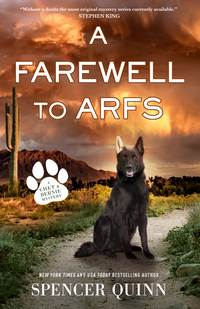 A Farewell to Arfs
A Farewell to Arfs

![]()




 1.
1. 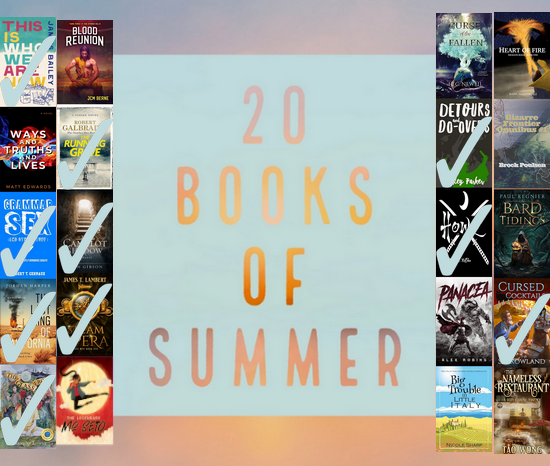
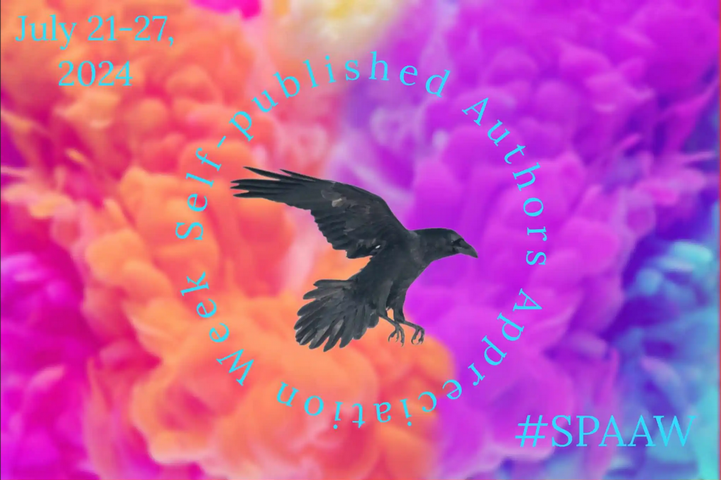

 Cause and Effect: Vice Plagues the City
Cause and Effect: Vice Plagues the City 